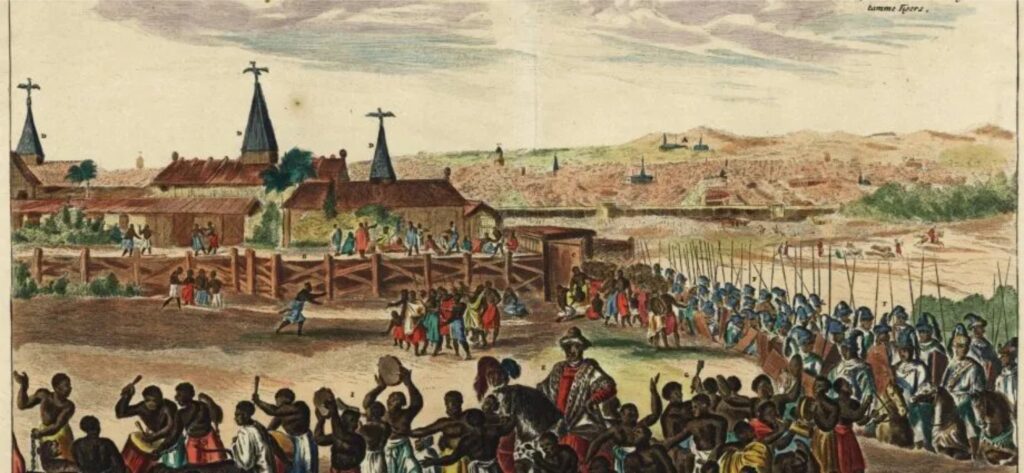In April 2025, the riverine town of Oporoza in Delta State transformed into the spiritual heartbeat of the Ijaw nation. The Gbaraun Egbesu, Ibolomobo Ere and Amaseikumor Festival returned with renewed energy. It was a week-long ritual of cleansing, cultural reaffirmation, and communal unity.
Ancient Traditions Flow Through the Creeks
Hosted by the Gbaramatu Kingdom, the festival dates back centuries. The name “Amaseikumor” means “do not soil the land.” It symbolizes a collective pledge to spiritual and environmental purity. The event embodies justice, reconciliation, and cultural pride.
Seven Days of Ceremony and Meaning
Days 1 to 3: Gbaraun Egbesu Rites
The week opened with mass confessions. Elders, youths, and women publicly acknowledged wrongs done. The Pere (King of Gbaramatu) led prayers of forgiveness, calling for renewal and accountability.
Day 4: Ibolomobo Ere — The Women’s Day
Senior Ijaw women dressed in coral regalia took center stage. Their prayers and blessings emphasized fertility, social stability, and health. Their presence reminded the community of the vital role of matriarchal leadership in Ijaw spiritual life.
Days 5 to 6: Amaseikumor Masquerades and Rituals
Masquerades representing water deities, ancestors, and natural forces danced through Oporoza. The performances were accompanied by drumbeats, horn calls, cultural lectures, and awards. The stories of the Ijaw were not just remembered but relived.
Day 7: Thanksgiving and Farewell
The festival concluded with communal thanksgiving, feasting, and music under the palm-lined sky. Christians, Muslims, traditional worshippers, and diaspora returnees shared the same space in celebration.
It Happened: April 19 to 25, 2025
This year’s edition drew thousands to Oporoza. Guests arrived from the Niger Delta, Lagos, Bayelsa, and the diaspora. Government representatives, cultural leaders, and faith-based institutions came together to witness the harmony between tradition and modern relevance.
Cultural Continuity and Community Impact
While deeply spiritual, the festival also boosted the local economy. Craftspeople, boat owners, food vendors, and local artisans benefited from the traffic. The festival preserved Ijaw heritage while reinforcing livelihoods and tourism potential.
Why It Matters
The 2025 festival was more than performance. It was cultural memory in motion. The younger generation received an education in history. The wider Nigerian public saw a people owning their voice. For the Ijaw, it was not just ritual. It was responsibility.
—
References
Amaseikumor Festival: Grand celebration of rich Ijaw cultural heritage
Amaseikumor Festival: Where water spirit displays as masquerade
Gbaramatu Kingdom to witness seven days mega Amaseikumor Festival
2025 Amaseikumor Festival: Gbaramatu, Honoring Ijaw Heritage and Tradition
Niger Delta’s Amaseikumor festival to preserve Ijaw cultural heritage, not for human sacrifice — Spokesman
We must do everything to preserve our culture, traditions — Keyamo


